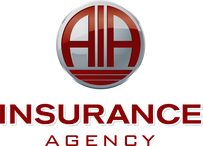|
Back to Blog
 by Brett Cheatham, Sales Executive by Brett Cheatham, Sales Executive Many business owners and managers understand coinsurance from a health insurance perspective. The idea that the insured pays part of the cost of health services as a percentage of the total and the insurance carrier pays the rest. The consumer becomes the coinsurer. What a lot of people don’t know is there can be a similar “coinsurance clause” in commercial property policies. Many commercial property policies contain a coinsurance clause. This clause imposes a penalty when a policyholder suffers a loss and has failed to purchase an adequate amount of insurance. In property insurance, coinsurance is based on the concept of insurance to replacement cost, meaning the ratio of your insurance limit to the value of your insured property. This means that you must purchase a policy limit that meets or exceeds the coinsurance percentage. If you have a 100% coinsurance clause and a building that would cost $1 million to replace, you must purchase at least $1 million in coverage. For example, let’s say the insured had only purchased $800,000 in insurance on the $1 million dollar building and had a covered loss with damage of $100,000. In this scenario, the building was only insured for 80% of its actual replacement cost value. Therefore, the carrier is only obligated to reimburse 80% of the cost of damages less the deductible. In other words, the insured would only receive $80,000 less the deductible of their $100,000 claim. The carriers we insure our water and waste water systems through have a 0% coinsurance clause. Meaning that in our above example, the insured would receive full claim reimbursement less the deductible. No surprises!
0 Comments
read more
Your comment will be posted after it is approved.
Leave a Reply. |
|
Services |
learn more |
|



